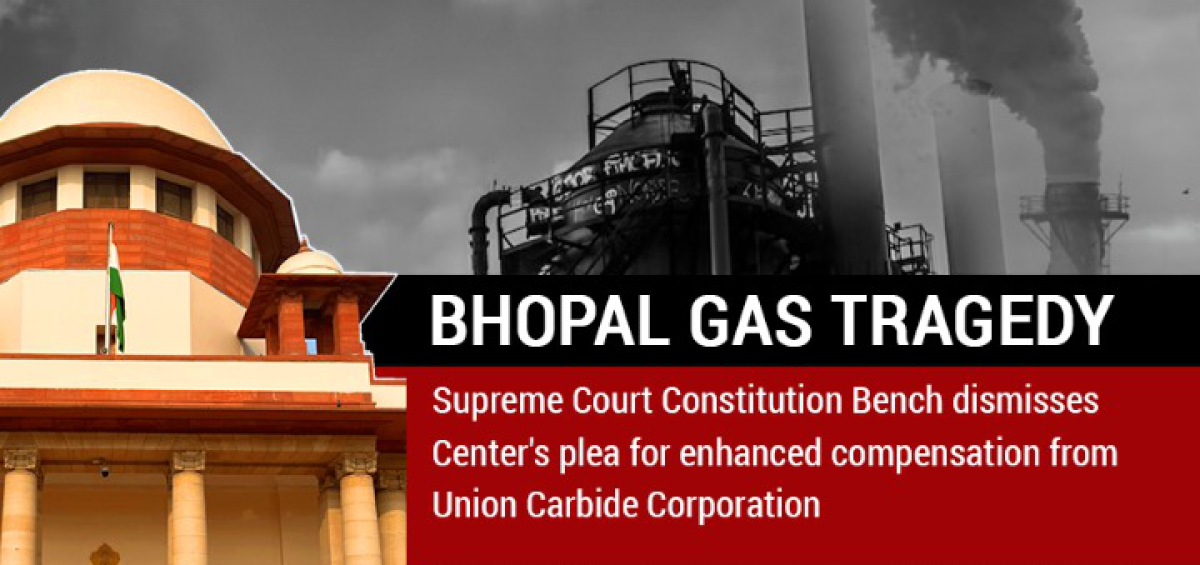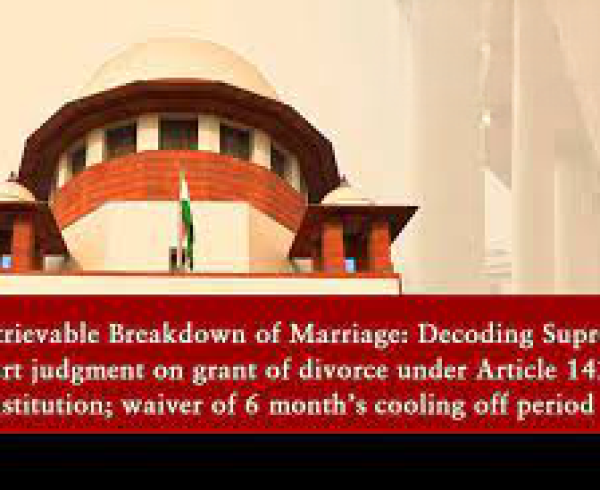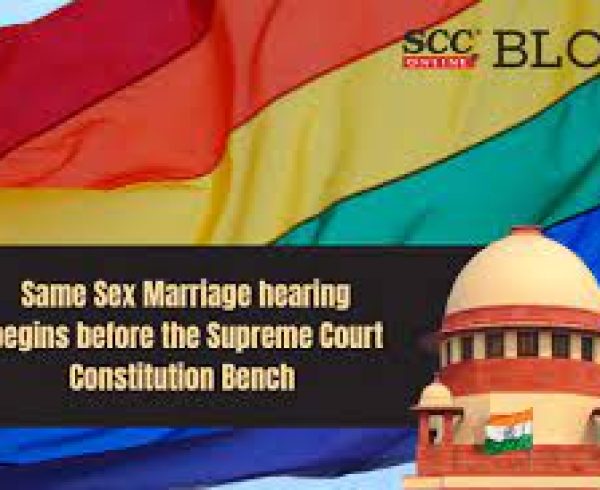The Supreme Court however, ordered that a sum of Rs 50 crore lying with the Reserve Bank of India be utilized by the Center to satisfy the pending claims, if any, in accordance with the Bhopal Gas leak Disaster Act, 1985 and schemes framed thereunder.
Supreme Court: The Constitution Bench comprising of Sanjay Kishan Kaul*, Sanjiv Khanna, Abhay S. Oka, Vikram Nath and J.K. Maheshwari, J.J., which had reserved its judgement on 12-01-2023, delivered its judgment dated 14-03-2023 dismissing the curative petition seeking enhancement of compensation for the victims of the world’s largest industrial disaster- the Bhopal Gas Tragedy.
In the year 1984, dangerous amount of Methyl Isocyanate gas (‘MIC gas’) escaped at an enterprise engaged in manufacturing agricultural pesticides, which resulted in death of thousands of people, leaving many with temporary and permanent disability.
The Supreme Court had then passed a settlement order directing the Union Carbide Corporation (‘UCC’) to pay a sum of US$ 470 million, which was deposited with the Supreme Court Registrar in 1989.
The present petition was filed by the Union of India (‘UoI’) in 2010 as parens patriae of victims on the direction of Union Cabinet to claim enhanced compensation alleging that the quantum of damages payable had vitiated the Court’s affirmation under Union Carbide Corporation. v. Union of India, (1989) 3 SCC 38 (‘settlement judgment’) and Union Carbide Corporation. v. Union of India, (1991) 4 SCC 584 (‘review judgment’).
The petitioner had contended that after comprehensive review, the impugned judgments and orders were incorrect based on the underlying assumptions of the facts and data having vitiated the very foundation on which the compensation was awarded. A difference was recorded between the Court’s and the actual figures submitted by UoI, in the estimated number of deaths, temporary disability and minor injury cases.
The Court stated that it was Union’s own stand that the Commissioner had adjudicated upon all claims, by the procedure established by law, where the possibility of appeal was provided with.
The Bench perused the Court’s order dated 19-07-2004, wherein, it was an admitted fact in the proceedings that the amount of settlement was found to be in surplus of the actual requirement and thus, the claimants had been compensated reasonably under the law. Therefore, the Bench was of the view that that the position that the settlement amount was sufficient to compensate the claimants was reinforced.
The Bench noted that the scenario arising in the present case of shortage, was clearly outlined in the review judgement and stated that the responsibility was on UoI, being the welfare state for making good the deficiency and to take out relevant insurance policy.
However, the Court expressed its surprise that there was no such insurance policy taken out which was clearly a gross negligence on part of the Center and in breach of direction made in the review judgement. The Court opined that “the Center cannot be negligent on this aspect and then seek a prayer from this court to fix such responsibility on UCC.”
The Bench was of the view that “the Center had claimed for a top up which had no foundation in any known legal principal. Either a settlement was valid, or it was to be set aside in cases where it was vitiated by fraud. No such fraud has been pleaded by the Center and their only contention relates to a number of victims, injuries and costs that were not contemplated at the time when settlement was effective.”
The Court stated that it was known that the medical facility would have to be extended to habituate people and were bound to the environmental degradation. The Bench agreed with the allegations made by UCC that the Union and State government did not proactively detoxify and decommission the site thereby, aggravating the problem and stated that this cannot be a ground to seek annulment of the compromise, particularly as the settlement has to reach in an expedient manner.
The Court referred to the contention made by the Attorney General that the method of topping up the settlement amounts to be devised under Article 142 of the constitution of India and stated that this would not be an appropriate course of action or the method to impose greater liability on UCC that it initially agreed to bear.
The Court ordered that a sum of Rs 50 crore lying with the Reserve Bank of India be utilized by the Center to satisfy the pending claims, if any, in accordance with the Bhopal Gas leak Disaster Act, 1985 and schemes framed thereunder.
The Court further stated that “providing closure to the lis was also an important aspect, which is more so in the context and scenario faced by the Indian Judiciary where delay is almost inevitable.”
With the above observations, the Court, therefore, dismissed the Curative Petition.
The Court order is yet to be uploaded on the website.
[Union of India v Union Carbide Corporation, 2023 SCC OnLine SC 264, pronounced on 14-03-2023]…






Leave a Comment